Detecting Listeria species in the food chain is vital to prevent contamination of products and reduce the risk to consumers. Rapid methods of testing are now widely used to reduce the time-to-result for pathogen testing and allow quicker reactions in the manufacturing facility.
Listeriosis is a life-threatening infection caused by eating food contaminated with the bacterium Listeria monocytogenes. Healthy individuals may experience fever, muscle cramps and gastrointestinal symptoms. However, cases of invasive illness may lead to meningitis, brain infection, and severe blood infection. The disease can be fatal to unborn babies, newborns, elderly, and people with weakened immune systems. Therefore, Listeriosis is one of the most serious food- and waterborne diseases under EU surveillance.
Listeria can grow slowly at temperatures as low as 0°C and may therefore multiply to dangerous levels in refrigerated foods if not controlled. Cooking food thoroughly kills Listeria meaning that ready-to-eat foods are the most high-risk. Past outbreaks have been associated with deli meats, dairy products such as soft cheese, prepared salads and fresh fruit and vegetables. Quality control testing and environmental monitoring of Listeria species in food manufacturing sites is crucial to preventing contamination of food products.
Listeria results in 2 days!
COMPASS® Listeria Method from Biokar allows the rapid detection and enumeration of Listeria monocytogenes and of Listeria spp. in food products and environmental samples (including process and rinse water) in just 2 days.

Figure 1. Instructional diagram for detection of Listeria spp. using Compass Listeria method.
Compass Listeria Method
This method is certified by Afnor in relation to reference method NF EN ISO 11290-1/A1 and according to standard method NF EN ISO 16140. Compass Listeria method removes the need for a secondary enrichment step, such as Fraser broth, reducing enrichment to 1 day.
- Step 1 – selective enrichment in Half Fraser broth for 18-24 hrs at 37°C or 22-28 hrs at 30°C.
- Step 2 – inoculation onto COMPASS Listeria Agar & incubation for 24-48 hrs.
Click here to access the technical datasheet with instructions for use.

Figure 2. Typical appearance of L. monocytogenes (blue with halo) and other Listeria spp. (blue without halo) colonies when plated on Compass Listeria agar.
- Step 3 – confirmation of presumptive positive colonies using one of the following methods:
- · Classical tests described in the CEN or ISO standard methods.
- · Methods certified according to EN ISO 16140-6.
- · CONFIRM’ L. mono broth.
- · CONFIRM’ L. mono agar.
- · Palcam agar.
- · Biochemical identification gallery.

Figure 3. Appearance of positive and negative Listeria monocytogenes results in CONFIRM’ L. mono broth and agar from Biokar.
Benefits of Compass Listeria Method
- · No need for secondary enrichment step.
- · Excellent selectivity for easy plate reading.
- · Clear distinction of L. mono colonies with a halo.
- · Negative screening is <48 hours.
- · Flexibility in confirmation method used.
Increased flexibility for your laboratory schedule
- · After enrichment, Half Fraser broth can be kept up to 72 hrs at 2-8°C before inoculation.
- · First reading can be done after 22 hours of incubation. Result given after 48 hours.
- · Agar plates can be kept at 2-8°C for 72 hrs before reading.
- · Buffered peptone water may be used instead of Half Fraser for enumeration.
To learn more about the Compass Listeria method or our range of rapid chromogenic agars, reach out to your account manager or contact MSC below:
Source: European Centre for Disease Prevention and Control (ECDC). Annual Epidemiological Report for 2021. Stockholm: ECDC; 2021. Available at: https://www.ecdc.europa.eu/en/publications-data/listeriosis-annual-epidemiological-report-2021
Get In Touch


